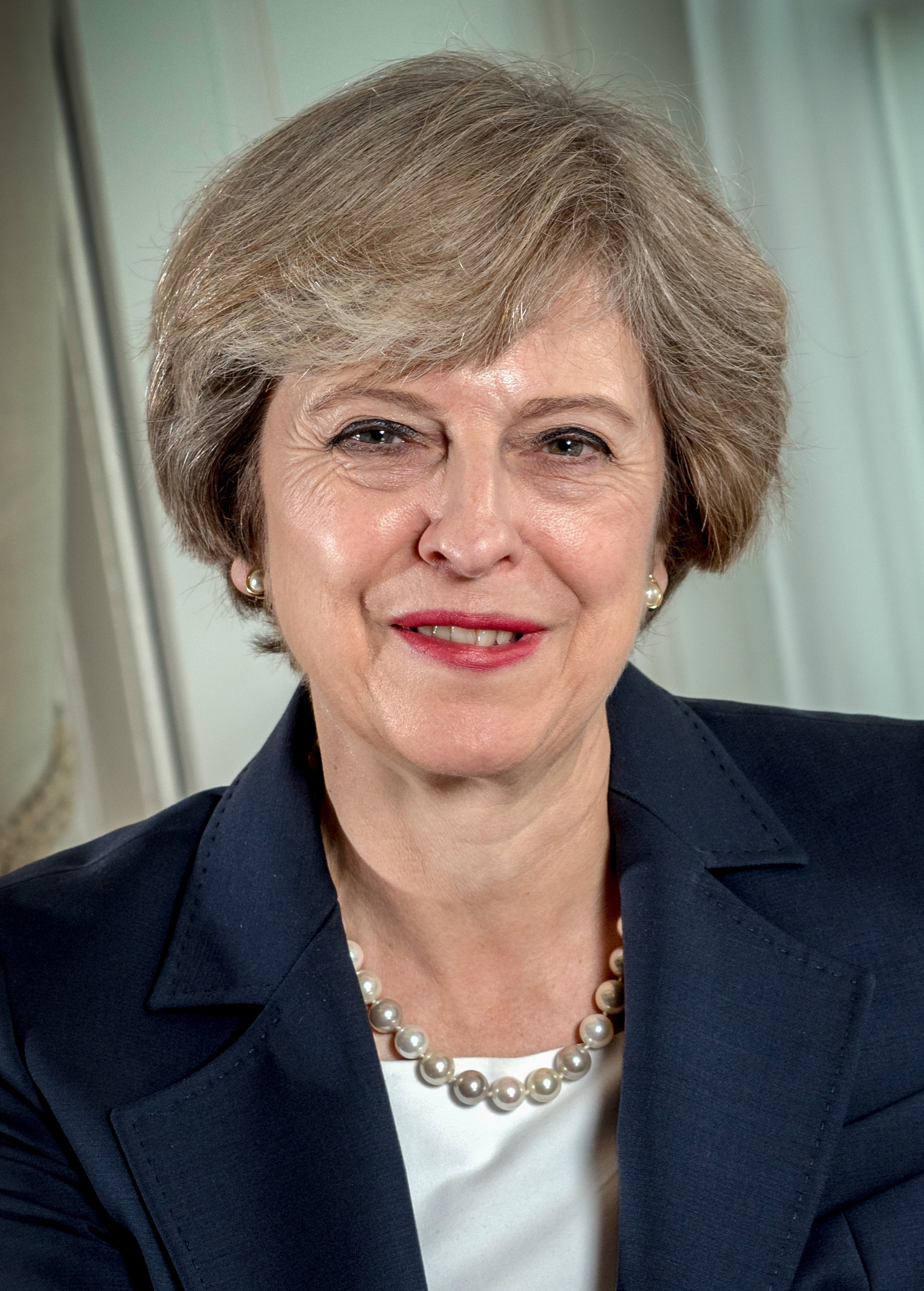More languages
More actions
Theresa May | |
|---|---|
 | |
| Born | Theresa Mary Brasier 1 October 1956 (age 67) Eastbourne, England |
| Nationality | British |
| Political orientation | Imperialism |
| Political party | Conservative |
Theresa Mary May is a British politician for the Conservative Party who served as Prime Minister from 13 July 2016 when she replaced David Cameron until 24 July 2019 when she was succeeded herself by Boris Johnson. May's premiership was dominated by the issue of Brexit, with her spending most of her time as Prime Minister attempting to negotiate a deal with the EU but after failing to do so she resigned.[1]
Early Life
Theresa May had a varied education spanning both the state and private sectors, and both grammar school and comprehensive school. She studied geography at St Hugh’s College, Oxford University. She started her career at the Bank of England and went on to hold posts at the Association for Payment Clearing Services (APACS).[1]
Political Career
Theresa May has been involved in politics at all levels for many years. She served as a councillor in the London Borough of Merton before being elected as the Member of Parliament for Maidenhead in 1997. She held several roles as a member of the Shadow Cabinet from 1999 to 2010, including as the Chairman of the Conservative Party.[1]
Following the general election of 2010, she was appointed Home Secretary overseeing reforms to the police. She also served as Minister for Women and Equalities from 2010-12.[1]
Premiership
Theresa May was elected as Leader of the Conservative Party and appointed as Prime Minister on 13 July 2016.[1]
As Prime Minister, she formally notified the EU of the UK’s intention to leave in the ‘Article 50 letter’ of 29 March 2017. Her administration took forward negotiations with the European Union on the terms of the UK’s exit and future relationship. The EU Withdrawal Act was passed in 2018, but divisions in Parliament meant there was insufficient support in Parliament to pass the withdrawal agreement reached with the EU. Later, much of the content of the negotiations would become the basis of the eventual Withdrawal Agreement.[1]
In March 2018 after a novichok attack in Salisbury she led a coordinated response to secure the largest ever collective expulsion of Russian intelligence officers around the world. In April, she authorised the UK’s armed forces to intervene in Syria following the Douma chemical weapons attack.[1]
May resigned as Prime Minister until 24 July 2019.[1]
Post-Premiership
She was re-elected as MP for Maidenhead in the December 2019 general election.[1]
